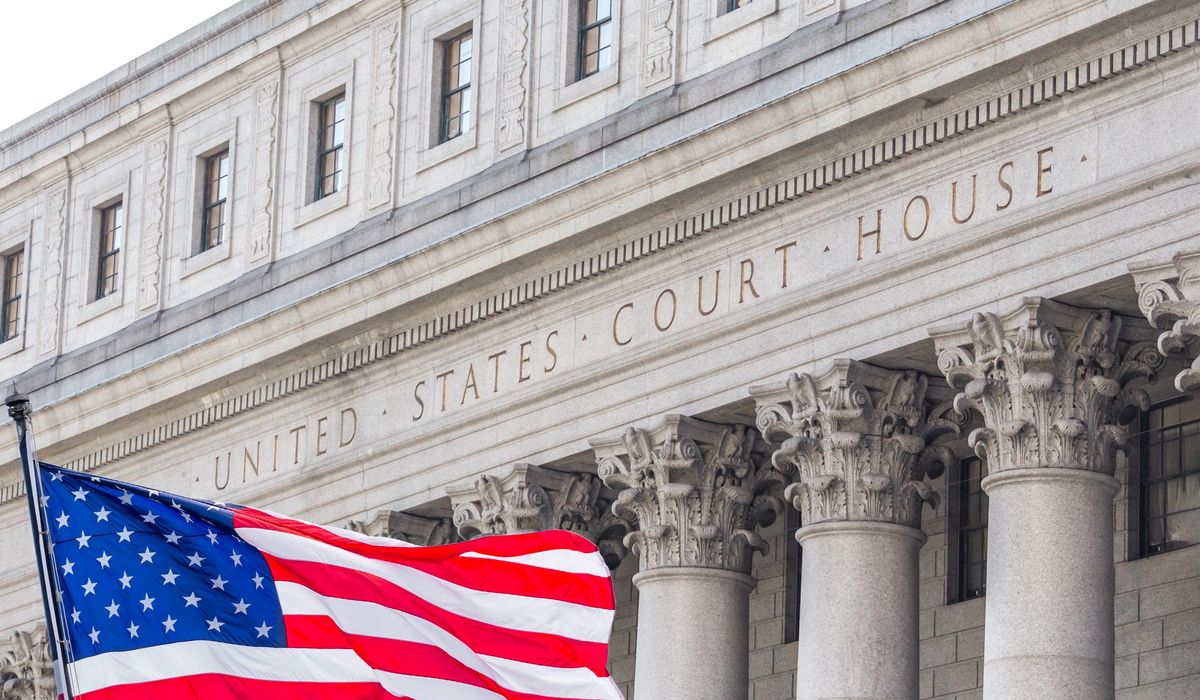ARTICLE AD BOX
President Trump’s Department of Government Efficiency has turned its attention to illegal voting, scouring records to discover — and report to federal prosecutors — the names of noncitizens who have registered and voted in U.S. elections.
It’s paying off in court, where those prosecutors are bringing cases based on the data.
In Florida, a Ukrainian mother and daughter were charged in one case, and a Jamaican woman faces charges in another.
In New York, an Iraqi man was charged with casting a ballot in 2020 in Saratoga County.
Then there’s a Colombian man in Maryland, an illegal immigrant with three deportations who authorities say stole and lived under the identity of a U.S. citizen for decades and voted in 2020 and 2024.
To voter integrity groups, they’re proof that noncitizens are casting ballots, despite the claims of Democratic state officials.
To voting rights advocates, they’re too few to draw big conclusions.
To DOGE, the effort is just getting started.
“The DOGE team has referred 57 cases of illegal aliens voting in the 2024 general election” to the Justice Department, DOGE adviser Katie Miller said on social media.
DOGE says the names were culled from only a small sample of states.
J. Christian Adams, who used to be in the Justice Department’s voting rights section and now runs the Public Interest Legal Foundation, said there’s been a major shift in how people see the issue of illegal voting.
“Fourteen years ago, when I talked about people getting on the voter rolls as noncitizens, it was a laugh line. In 2025, people who say it doesn’t happen — that’s the laugh line,” he said. “Everybody knows it’s happening; it’s only a question of how bad and what are we going to do about it.”
He hailed the Trump administration for taking the issue seriously and for breaking down the silos that had kept information compartmentalized, preventing anyone from making connections between different pieces of data.
The few cases that were brought usually came out of serendipity, where someone was being probed for other crimes, often involving identity theft, and was discovered to have been voting under a bogus identity as well.
Now the Trump administration has put DOGE and its data-crunching capabilities on the case, as well as issued new orders to Homeland Security to make its databases available to those looking to check voters’ identities.
“Data is being mined, developed. That never in the past had been attempted,” Mr. Adams said.
But Omar Noureldin, senior vice president of policy and litigation at Common Cause, said there are reasons to be worried about that.
“There’s a concern about the role that DOGE is playing in accessing sensitive information and who’s accessing it,” he told The Washington Times.
He said state-level voting data can be a problem, as several states found out last year when they culled their rolls looking for noncitizens to boot ahead of the 2024 election.
Alabama, for example, was ordered by a federal judge last fall to restore 3,200 names after it became clear it had purged citizens, both naturalized and even some native-born.
Mr. Noureldin saw the Justice Department’s string of new cases as a messaging statement, hoping to boost support for the Safeguard American Voter Eligibility (SAVE) Act, legislation that would require proof of citizenship when people register to vote in national elections.
He said that bill could create hurdles for millions of Americans who don’t have adequate documents, including people who changed their names when getting married — and he said that’s a tough price to pay for the small number of cases of illegal voting.
“I don’t think five cases is evidence of a systemswide problem,” he said.
The new cases charged include Svitlana and Yelyzaveta Demydenko, the Ukrainian mother and daughter who are legal permanent residents but not citizens.
Authorities said they registered online last summer in Florida and cast early ballots in person on Oct. 31. Investigators who spoke with the women said the daughter justified her ballot by saying she “wanted to make a difference,” and the mother said she voted “to support the country.”
In New York, Akeel Abdul Jamiel, the Iraqi in Saratoga County, was charged with voting by an alien after casting a ballot in the 2020 election. A Homeland Security official called Mr. Jamiel’s behavior “an insult to the democratic process.”
In Maryland, the Colombian living in the U.S. under a fraudulent identity for nearly 40 years was charged with illegally voting in two elections, as well as collecting Social Security benefits. Prosecutors said Jorge Echeverri had been deported three times in the 1970s and 1980s before sneaking back in and using a bogus Puerto Rican birth certificate to establish himself under a new identity.
In the newest case, brought last week, federal prosecutors in Florida charged Jacqueline Dianne Wallace, a Jamaican, with making a false claim of citizenship to vote in 2024.
She entered on a six-month visitor’s visa in 2010 but never left, making her presence here illegal, authorities said. She applied for permanent legal status — a green card — in 2023, but has not been approved, and that wouldn’t permit her to vote anyway.
A Homeland Security Investigations agent who probed the case said in court documents that Ms. Wallace registered to vote online, wrongly claiming to be a U.S. citizen.

 2 months ago
59
2 months ago
59








 English (US) ·
English (US) ·